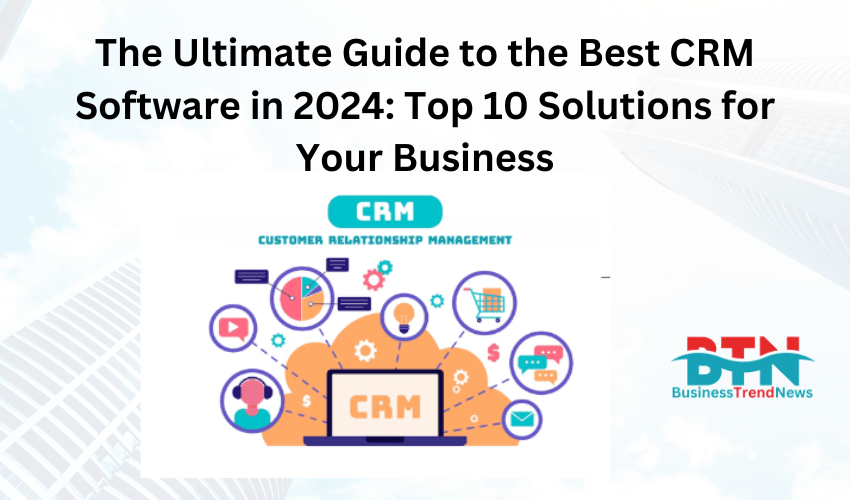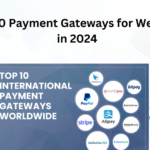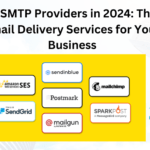![]()
In today’s competitive business landscape, customer relationship management (CRM) software is essential for maintaining and growing a successful enterprise. Whether you’re a small business or a large corporation, the right CRM can help you manage customer interactions, streamline processes, and ultimately drive growth. With so many options available, choosing the best CRM software can be overwhelming. In this comprehensive guide, we’ll explore the top CRM solutions for 2024, helping you find the perfect fit for your business needs.
What is CRM Software?
CRM software is a tool that helps businesses manage customer relationships and interactions across various channels, such as email, social media, phone, and in-person meetings. It centralizes customer data, enabling companies to improve customer service, sales, and marketing efforts by having all relevant information in one place.
CRM systems are designed to:
- Track customer interactions and sales pipelines
- Automate routine tasks and workflows
- Provide analytics and insights into customer behavior
- Foster collaboration among teams
Why Your Business Needs CRM Software
Investing in CRM software can yield significant benefits, including:
- Improved Customer Retention: By understanding your customers better, you can tailor your services to meet their needs, increasing satisfaction and loyalty.
- Enhanced Sales Productivity: Automating repetitive tasks frees up your sales team to focus on closing deals.
- Data-Driven Decision Making: With detailed analytics and reporting, you can make informed decisions that drive business growth.
- Streamlined Communication: CRM software ensures that all customer interactions are logged and accessible, improving team collaboration and customer experience.
Top 10 Best CRM Software in 2024
Let’s dive into the best CRM software solutions available in 2024, covering their key features, pros, cons, and pricing.
1. Salesforce
Overview: Salesforce remains the leader in the CRM market, offering a robust and scalable platform that caters to businesses of all sizes. Known for its extensive customization options and a vast ecosystem of apps and integrations, Salesforce is ideal for businesses looking for a highly flexible solution.
Key Features:
- Customizable dashboards and reports
- AI-powered insights with Salesforce Einstein
- Integration with over 5,000 apps in the AppExchange
- Powerful automation tools for marketing, sales, and service
Pros:
- Highly customizable
- Extensive third-party integrations
- Comprehensive training and support resources
Cons:
- Can be expensive, especially for small businesses
- Steep learning curve
Pricing: Starts at $25/user/month (Essentials plan)
2. HubSpot CRM
Overview: HubSpot CRM is a popular choice for small to medium-sized businesses, offering a free version with robust features. HubSpot provides an easy-to-use interface, making it accessible for businesses new to CRM systems.
Key Features:
- Free tools for lead generation, email marketing, and live chat
- Integration with HubSpot’s Marketing, Sales, and Service Hubs
- Detailed contact management and tracking
- Customizable dashboards and reports
Pros:
- Free version available
- User-friendly interface
- Seamless integration with HubSpot’s other tools
Cons:
- Limited customization in the free version
- Advanced features require paid upgrades
Pricing: Free version available; paid plans start at $50/month
3. Zoho CRM
Overview: Zoho CRM offers a cost-effective solution with a broad range of features, making it suitable for businesses of all sizes. It’s part of the Zoho Suite, allowing seamless integration with other Zoho applications.
Key Features:
- AI-powered sales assistant, Zia
- Multichannel communication (email, social media, phone)
- Advanced analytics and reporting
- Workflow automation
Pros:
- Affordable pricing
- Integration with Zoho Suite and third-party apps
- Strong automation features
Cons:
- User interface can be complex
- Customer support could be improved
Pricing: Starts at $14/user/month
4. Pipedrive
Overview: Pipedrive is a CRM designed with sales teams in mind. Its visual pipeline management and intuitive interface make it easy for teams to focus on the sales process.
Key Features:
- Visual sales pipeline
- Automation of repetitive tasks
- Customizable sales stages and fields
- Mobile app for on-the-go management
Pros:
- User-friendly and intuitive interface
- Strong focus on sales pipeline management
- Affordable pricing
Cons:
- Limited features outside of sales management
- Basic reporting features
Pricing: Starts at $14.90/user/month
5. Freshsales (Freshworks CRM)
Overview: Freshsales, part of the Freshworks suite, offers a CRM that’s perfect for small to medium-sized businesses. It combines powerful features like AI-driven lead scoring with an intuitive interface.
Key Features:
- AI-based lead scoring
- Built-in phone and email
- Sales sequences and automation
- Customizable reports and dashboards
Pros:
- Comprehensive feature set at an affordable price
- Easy to use
- Strong customer support
Cons:
- Limited customization options
- Some advanced features are only available in higher-tier plans
Pricing: Starts at $15/user/month
6. Microsoft Dynamics 365
Overview: Microsoft Dynamics 365 is an enterprise-grade CRM solution that offers deep integration with other Microsoft products like Office 365, Teams, and Azure. It’s ideal for large organizations that require a comprehensive, scalable solution.
Key Features:
- Seamless integration with Microsoft ecosystem
- AI-driven insights and analytics
- Customizable workflows and automation
- Advanced reporting and data visualization tools
Pros:
- Powerful integration with Microsoft tools
- Scalable and customizable
- Strong security features
Cons:
- Complex setup and configuration
- Expensive for smaller businesses
Pricing: Starts at $65/user/month
7. Insightly
Overview: Insightly is a CRM designed for small businesses, with a focus on project management and workflow automation. It offers a comprehensive feature set that includes sales, marketing, and service tools.
Key Features:
- Project management and workflow automation
- Integration with popular apps like G Suite and Office 365
- Email tracking and templates
- Customizable dashboards and reports
Pros:
- Combines CRM with project management
- Easy integration with other business tools
- Affordable pricing
Cons:
- Limited advanced features
- Customer support can be slow
Pricing: Starts at $29/user/month
8. Nimble
Overview: Nimble is a social CRM that integrates with social media platforms and other business tools to help you manage relationships across various channels. It’s designed for small businesses and professionals who rely on social networks to build connections.
Key Features:
- Social media integration
- Unified contact management
- Email tracking and automation
- Customizable pipelines and dashboards
Pros:
- Strong social media integration
- Easy to use
- Affordable for small businesses
Cons:
- Limited advanced CRM features
- Basic reporting capabilities
Pricing: Starts at $19/user/month
9. SugarCRM
Overview: SugarCRM is a highly customizable CRM solution that offers robust features for businesses looking for a tailored experience. It’s suitable for mid-sized to large businesses that require more control over their CRM system.
Key Features:
- Customizable modules and dashboards
- Powerful automation tools
- AI-driven insights and predictive analytics
- Multichannel communication and integration
Pros:
- Highly customizable
- Strong analytics and automation features
- Flexible deployment options (cloud or on-premise)
Cons:
- Can be complex to set up
- Expensive compared to other CRMs
Pricing: Starts at $52/user/month
10. Keap (formerly Infusionsoft)
Overview: Keap is a CRM and marketing automation platform designed for small businesses. It offers tools to help you manage customer relationships, automate marketing campaigns, and streamline sales processes.
Key Features:
- Email marketing and automation
- Lead capture and management
- Appointment scheduling
- Payment processing integration
Pros:
- Combines CRM with marketing automation
- Easy to use and set up
- Strong customer support
Cons:
- Limited customization options
- Pricing can be high for small businesses
Pricing: Starts at $79/month (includes 1 user and 500 contacts)
How to Choose the Best CRM Software for Your Business
Choosing the right CRM software for your business depends on several factors. Here are some key considerations to keep in mind:
- Business Size and Industry: The needs of a small business differ from those of a large corporation. Consider a CRM that aligns with your business size and industry requirements.
- Budget: CRM software varies widely in price. Determine your budget and look for a solution that offers the best value for your money.
- Key Features: Identify the features that are most important to your business. For example, if you need robust marketing automation, look for a CRM that excels in that area.
- Ease of Use: A CRM should be user-friendly and intuitive. Consider a solution that your team can easily adopt and start using without extensive training.
- Integration with Other Tools: Ensure the CRM you choose can integrate with other software you’re already using, such as email marketing tools, project management software, or accounting systems.
- Customer Support: Reliable customer support is crucial, especially when you’re implementing a new system. Look for a CRM provider that offers strong support and resources.
- Scalability: As your business grows, your CRM needs may change. Choose a solution that can scale with your business and accommodate future growth.
Conclusion: Finding the Best CRM Software for Your Business
Investing in the right CRM software can transform the way you manage customer relationships and drive business success. Whether you’re a small startup or an established enterprise, there’s a CRM solution out there that fits your needs.
Salesforce, HubSpot, and Zoho CRM stand out as top choices for their flexibility, features, and scalability. However, each business has unique requirements, so it’s important to evaluate your options based on your specific needs and goals.
By taking the time to research and select the best CRM software, you’ll be well-equipped to manage customer relationships effectively, streamline operations, and ultimately achieve your business objectives.



